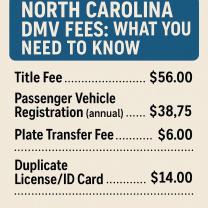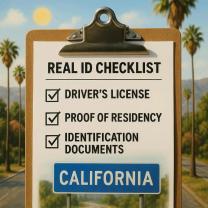What are the responsibilities of a local government?
Local governments, also known as municipal governments, have a range of responsibilities and duties that vary from one jurisdiction to another, depending on the country, state, or region. However, some common responsibilities and functions of local governments include:
Public Services:
- Providing essential public services such as water supply, sewage and wastewater management, and garbage collection and disposal.
- Managing and maintaining local infrastructure, including roads, bridges, and public buildings.
Urban Planning and Zoning:
- Regulating land use through zoning laws and urban planning to ensure orderly development and land use within the municipality.
- Issuing building permits and overseeing construction and development projects.
Local Law Enforcement:
- Maintaining law and order through local police departments.
- Enforcing local ordinances and traffic regulations.
Emergency Services:
- Providing or coordinating emergency services such as fire protection, ambulance services, and disaster response.
Public Health:
- Overseeing public health programs, including sanitation and disease control efforts.
- Managing local health clinics and vaccination programs.
Education:
- Depending on the region, some local governments are responsible for funding and overseeing public education, including elementary and secondary schools.
Recreation and Culture:
- Providing parks, recreational facilities, and cultural programs for residents.
- Managing libraries, community centers, and sports complexes.
Social Services:
- Offering social services such as welfare, housing assistance, and programs for vulnerable populations.
- Supporting local non-profit organizations and community groups.
Economic Development:
- Promoting economic development through initiatives such as business incentives, tourism promotion, and job creation efforts.
Local Taxation and Budgeting:
- Raising revenue through local taxation, including property taxes and user fees.
- Creating and managing municipal budgets to allocate funds for various services and programs.
Elections and Voter Registration:
- Organizing and overseeing local elections and voter registration processes.
- Managing polling places and ensuring the integrity of elections.
Environmental Protection:
- Enforcing environmental regulations and protecting natural resources within the local jurisdiction.
- Promoting sustainability and conservation efforts.
Transportation:
- Coordinating and maintaining local transportation systems, including public transit and road maintenance.
- Addressing traffic and congestion issues.
Community Planning and Development:
- Engaging in long-term community planning to guide growth and development.
- Encouraging affordable housing and community revitalization efforts.
Licensing and Permits:
- Issuing licenses and permits for businesses, construction, and other activities.
- Ensuring compliance with local regulations.
It's important to note that the specific responsibilities of local governments can vary widely depending on the legal and administrative structures of the country or region in question. Additionally, the level of autonomy and decision-making power of local governments may differ, with some having more authority than others. Local governments often work in coordination with regional or national governments to ensure the well-being and prosperity of their communities.
Responsibilities of Local Government: A Comprehensive Overview
Local governments are responsible for a wide range of services and programs that have a direct impact on the lives of their residents. These responsibilities can vary depending on the specific type of local government, but they typically include the following:
- Public safety: Local governments are responsible for providing police, fire, and emergency medical services.
- Infrastructure: Local governments are responsible for maintaining and improving roads, bridges, water and sewer systems, and other public infrastructure.
- Land use and planning: Local governments are responsible for zoning and land use regulations, which shape the development of their communities.
- Community development: Local governments play a key role in promoting economic development and improving the quality of life in their communities.
- Parks and recreation: Local governments provide parks, playgrounds, and other recreational facilities for their residents.
- Education: Local governments are responsible for funding and managing public schools in many areas.
- Social services: Local governments provide a variety of social services, such as assistance to the poor, elderly, and disabled.
Local Government's Role in Community Development and Services
Local governments play a vital role in community development and services. They are often the first point of contact for residents who need help with a variety of issues. Local governments also work to promote economic development and create jobs in their communities.
Here are some specific examples of how local governments contribute to community development and services:
- Investing in infrastructure: Local governments invest in infrastructure such as roads, bridges, and public transportation to make it easier for people to get around and access essential services.
- Providing education and training: Local governments fund public schools and other educational programs to help residents develop the skills they need to succeed in the workforce.
- Attracting and supporting businesses: Local governments work to attract new businesses to their communities and support existing businesses by providing tax breaks, other incentives, and access to resources.
- Providing social services: Local governments provide a variety of social services to help residents in need, such as food assistance, housing assistance, and childcare assistance.
- Promoting public safety: Local governments provide police, fire, and emergency medical services to keep residents safe.
Public Engagement and Accountability in Local Governance
Public engagement and accountability are essential components of local governance. Local governments should be responsive to the needs of their residents and accountable for the decisions they make.
There are a number of ways that local governments can promote public engagement and accountability. These include:
- Holding regular public meetings: Local governments should hold regular public meetings to allow residents to voice their concerns and provide feedback on government decisions.
- Creating opportunities for public input: Local governments should create opportunities for public input on important decisions, such as through surveys, town hall meetings, and public hearings.
- Making information accessible to the public: Local governments should make it easy for residents to access information about government services, programs, and decisions.
- Establishing clear accountability mechanisms: Local governments should establish clear accountability mechanisms, such as citizen complaint procedures and public access to government records.
By promoting public engagement and accountability, local governments can build trust with their residents and make better decisions that reflect the needs of their communities.












